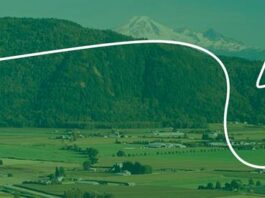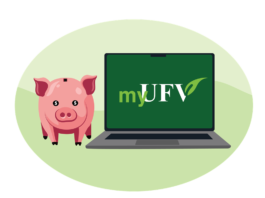By Paul Esau (The Cascade) – Email
Date Posted: August 26, 2011
Print Edition: August 25, 2011
Would you mind giving me your full name and all the appropriate letters after that name?
Mark Evered is what I go by, and I have a PhD in neural-physiology.
So what is that exactly?
It’s the study of how the brain functions. A physiologist is someone who studies how the body works, and a neural-physiologist is someone who focuses on the brain. I worked for about thirty years as a teacher and researcher, and was very much interested in not only the way in which the brain coordinates the many functions of our bodies but also how behavior was linked into all of that.
So neural science to “Mr. President”- how did you make that transition?
I can assure you that as a young faculty member and as a PhD student the last thing on my mind was moving into administrative work. It was clearly not a goal or aspiration. But as my career unfolded and I’ve had the opportunity to work on a number of continents and many locations within this country, I’ve also had the opportunity to serve my department, or my faculty, or eventually my university in a variety of ways… And as opportunity arrived I wasn’t very good at saying “no.” I found myself sometimes doing things that were truly challenging for me. But I can tell you that although I may not have aspired to be a university president, being the president of this university is a special privilege. This is a remarkable place in a very exciting stage of its development.
How long have you been the president of UFV?
Two years.
In your experience during these two years, what does the president of a university do? What are the main functions of the job?
It’s a job with diverse responsibilities. (Laughs) The president is, for better or worse, often the public face of the university. I’ve devoted a great deal of my first two years on the job working to increase our profile in the Fraser Valley. I think it’s the job of the university president to work with the university community, the faculty, the staff and students. The university we sometimes define as buildings, but a university is people and it’s the faculty, staff and students. So I see the role of the university president in drawing together the campus community to understand our commonly held goals, and to hold our feet to the fire to make sure we move forward in achieving our goals.
What would you consider to be the best part of your job?
Clearly the best part of my job is the wonderful people I get to meet and work with on a regular basis, especially because I live on the [Abbotsford] campus…One of the delights of being the president and living on campus is having students stop me as I walk. If I do it directly it takes about four minutes to walk from my office home, but I gotta tell you, that trip sometimes takes an hour. My wife has had to build that into our dinner schedule! (Laughs)
And the downside?
Well, the downside is that we struggle continually for resources. One of the most important challenges for any university president is making sure we’ve got the resources we need to do what we do. We’re about – on an annual basis – a hundred-million dollar operation. Only about half of that money comes from our government grant, but about a quarter of our income comes from student tuition, and there are limits to what we can expect students to pay for the experience. We’ve got to find all those other ways of raising funds, and that’s a really important part of the president’s job.
This interview will be published in an issue directed at students new to UFV. You spent your first year of university at McMaster. Looking back, who were you and where were you going?
Well to give you a little more information on my background that wouldn’t appear in my resume, I was the oldest of five boys. Five boys because my parents really wanted a girl. (Laughs)
Well, you have three girls.
I do have three girls, so I helped balance that. But I was the first one in my family to go to university. My mother had grade ten education, my father had grade seven. No one in my family or my extended family had ever gone to university, so it was especially intimidating. I’ve never forgotten that challenge for the student who’s the first generation learner, the student who can’t draw upon family experience or family guidance… I am extremely grateful to parents who saw the value of education even though they had not had the opportunity themselves. It’s not that they were stupid people… they did not have the opportunity. That was life at that time.
Based upon that first year experience, what advice would you have for students coming into this university?
[To] take full advantage of the opportunities that are available to them. I urge students to go beyond the selection of courses and find out what else is being offered on campus. We should never underestimate the value of the broad university experience for development… I would encourage students to immerse themselves in whatever excites them, to have fun!
During these younger and presumably less wise years, would you admit to doing anything kind of foolish during your time in university?
I’m not going to tell you! (Laughs)
That’s what I figured.
I… uh… I… I was a normal youth!
So I’ve heard you had a position on the Canadian Council of Animal Care. Tell me a little about that.
Well I’m a physiologist, and most physiologists at some stage in their career work on living animals. To study living organisms you have to use living organisms, but right from the early stages of my career – although I will argue there was and still is justification for the use of animals in research and teaching – I have believed that there is a huge responsibility that comes with that. That’s the responsibility to behave ethically, to behave humanely. When opportunities came up for me to get involved in the Canadian organization that has responsibility for the ethical treatment of animals in research, teaching, and testing…I became involved in the organization and was then invited to serve on the board and on the council.
For the benefit of the students, where exactly do you live?
I live in Friesen house. People may notice the sign on the far side of the gym parking lot, just south of the student residence. There’s a little laneway with a sign that says “Friesen House Private Residence.” That’s my house!





